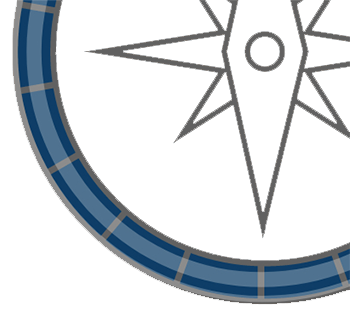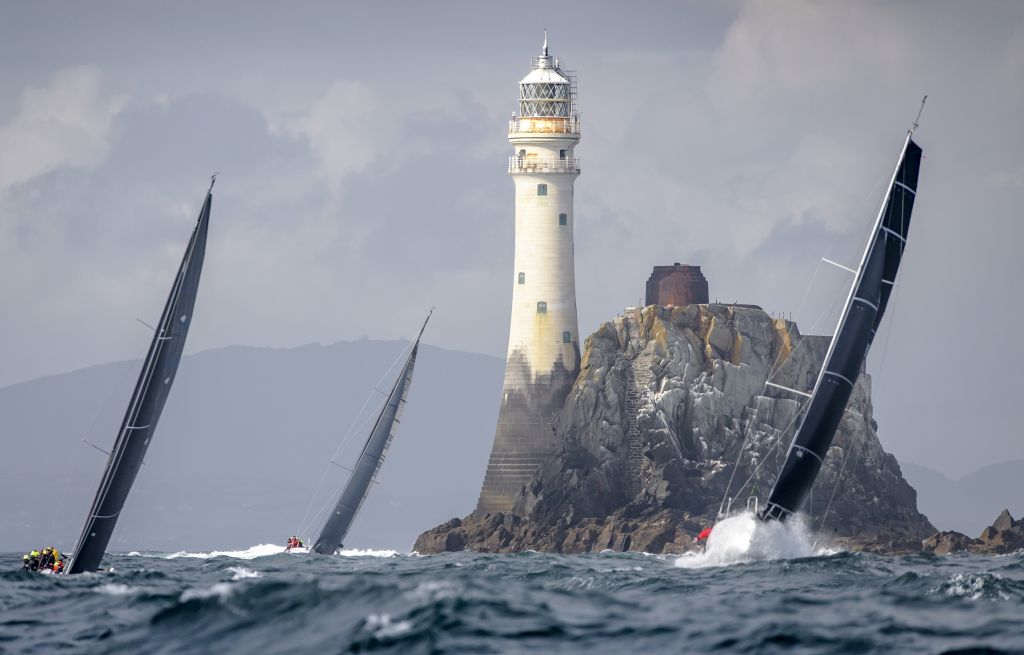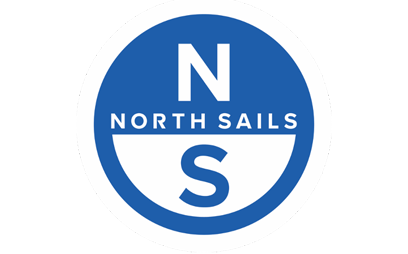
Wizard spells end of French Rolex Fastnet Race winning streak


Wind direction as much as strength defined the 48th edition of the Royal Ocean Racing Club’s Rolex Fastnet Race. A rare southeasterly for start day, which held through most of the first night, saw competitors sailing a straight line down the western Solent and out into the Channel.
For French Version / En français ici
When the new breeze filled in from the southwest, it never veered much further right than due west making for a tight reach across the Celtic Sea. This was anything but the typical ‘300 mile beat to the Fastnet Rock’ but made for a fast race with records tumbling from the Ultims to the Sigma 38s.
It also confirmed the Rolex Fastnet Race’s position as the world’s largest offshore race with 388 starters, setting a new record, up from the 362 of 2017.
As usual the race was a magnificent showcase of the complete range of offshore racing hardware, from French state of the art racers like the Ultims, IMOCA 60s and Class40s, to the bulk of entries in the huge IRC fleet, competing for the race’s top prize - the Fastnet Challenge Cup. These ranged from the world’s leading maxis, to top pro-am teams, to family and yacht club or charity or sailing school entries, for many of whom the Rolex Fastnet Race would represent the pinnacle of their sailing careers.
This year’s race was also unique in taking place the week before Cowes Week and starting on a Saturday (3rd August) not a Sunday. Fortunately come start day while the southeasterly was forecast to be ultra-light, especially in the western Solent in the lee of the Isle of Wight, in fact it was strong enough to propel the fleet along, assisted by a strongly ebbing spring tide.
The conditions also had profound tactical consequences. Being able to speed along in a straight line meant that the entire fleet made it past Portland Bill before the tide turned – unprecedented for the smaller classes. They had all also edged out into the mid-Channel and perhaps for the first time, no boats snuck into Lyme Bay for tidal relief.
While the famous Dorset and Devon headlands may not have been hurdles of the race, Mother Nature had laid on another for the first night with a transition from the southeasterly gradient breeze to pre-frontal southwesterlies. How to tackle the lull between was the big question, most forecasts indicating it would be narrowest further south. The most extreme approach was taken by the IMOCA 60s PRB and Malizia - Yacht Club de Monaco, which both tacked back north just 30 miles off the French coast.
Stars of the first night were British newbie IMOCA 60 skipper Pip Hare sailing doublehanded with ‘fastest sailor in the world’ Australian Paul Larsen. As the wind shut down and the tide turned foul mid-Channel, even the fastest monohulls in the fleet were making no progress. Meanwhile to the north, Hare and Larsen were trickling along. Remarkably, by midnight, they found themselves not only leading the IMOCA 60s but the entire monohull fleet, including George David’s Rambler 88 and Seng Huang Lee’s Dovell 100 SHK Scallywag.
As Pip Hare later explained: “I saw this transition coming through and it seemed really important to get west. From the beginning I thought the tide would be as important as the wind in the transition. Along the coast if you link up the tidal gates then if you keep west-going flow and you are always going to have wind.” They were also forced to sail deep under spinnaker as they didn’t have a masthead gennaker.
Inevitably the large IRC monohulls eventually overtook them before the Lizard but it took until midday Sunday, approaching the Scillies, for them to be overtaken by another IMOCA 60 – not bad for a 19-year-old charter boat.
For most of the fleet the Celtic Sea crossing was a straight line affair in solid breeze on a fetch to the Rock. However, thanks to the relentless southwesterly-westerly, the sea state stirred up was particularly sickness-inducing for crews on the smaller boats. This was offset after turning the corner at the Fastnet Rock on to a joyous broad reach and the opportunity to surf the waves back to Bishop Rock and on for the final run back past the Lizard and on to the finish line off Plymouth breakwater.
First into Plymouth were the new generation flying Ultims, who enjoyed a hair-raising finish. Maxi Edmond de Rothschild led around the Fastnet Rock, but lost the lead to Francois Gabart’s MACIF which seemed to have the race bagged. However in a last roll of the dice on the final gybe Maxi Edmond de Rothschild overstood and approached the line on a hotter angle. In a fading breeze she was able to fly when MACIF was not, causing her to overtake and win by just 58 seconds. Maxi Edmond de Rothschild’a time of 1d 4h 2m 26s, bettered the outright multihull race record, set by Maxi Banque Populaire in 2011 by 4h 45m 34s.
Behind there was a major tussle for monohull line honours between the more experienced Rambler 88 and the longer SHK Scallywag. On the first night both erred too far south allowing David and Peter Askew’s VO70 Wizard to get ahead. SHK Scallywag led past the Lizard, but the beam and power of Rambler 88 prevailed on the way to the Rock, which they rounded some 17 minutes ahead, setting a new record of 26h 45m 47s. From here Rambler 88 remained in front to claim her second consecutive line honours, although not breaking Abu Dhabi Ocean Racing’s 2011 monohull race record.
“The problem was we turned the corner at the Scillies it was VMG the whole way, so we sailed probably an extra 40 or 50 miles. That extra distance sailed added two to three hours onto our time,” explained Rambler 88’s owner George David, nonetheless satisfied with line honours.
Under corrected time, the IRC Z winner by 45 minutes was Wizard. The US VO70 sailed smartly throughout the race both on deck and tactically. The first example was making a better job of the transition on the first night, explained navigator Will Oxley. “We sailed low and the 72s went high and within hours we had three miles of separation to leeward of them, which was a clear decision. Then, recognising that the models weren’t right and wiggling there. Plus the crew work was excellent. Every manoeuvre was done really well. We never had the wrong sail up.”
Runner-up in IRC Z was another canting keeler, Bretagne Telecom of French boatbuilder Nicolas Groleau, for whom this was his sixth Rolex Fastnet aboard his Mach 45. Third went to David Collins’ TP52 Tala.
Among the twenty IMOCA 60s the race effectively re-started at the Scillies. Jérémie Beyou and Christopher Pratt on Charal demonstrated the outstanding speed of their latest generation foiler, and crossing the Celtic Sea extended their two mile lead to 15 miles. A poor sail selection on Charal after the Fastnet Rock allowed Yannick Bestaven and Roland Jourdain on Maître CoQ to draw level on the reach back, but Charal eventually recovered, also recording her top speed of the race – 33-34 knots.
There was compression between the top seven IMOCA 60s on the run to Plymouth, but judicious covering kept Charal ahead, winning in an elapsed time of 2d 1h 32m. A delighted Kevin Escoffier, sailing his first major race as the new skipper of PRB, with Nicolas Lunven, took second 23 minutes later, four minutes ahead of Banque Populaire sailed by another new IMOCA 60 skipper Clarisse Cremer, sailing with Vendée Globe winner Armel Le Cleac'h.
Arriving in the middle of IRC Z and the slower IMOCA 60s were the Class40 leaders. In the 19-boat fleet, competition was tight between the three Sam Manuard-designed Mach 40.3s - Luke Berry’s Lamotte - Module Création, Catherine Pourre's Eärendil and Leyton, campaigned by Rodrigue Cabaz as well as the Owen Clarke designed Imagine sailed by German Jörg Reichers and Beijaflore, the Marc Lombard-designed Lift 40 of William Mathelin Moreaux.
Eärendil led the Class40s out into the Celtic Sea but Beijaflore pulled ahead and at the Rock led by 34 minutes from Lamotte - Module Création. However Berry and his crew, including Mini Transat winners Corentian Bouguet and Fred Denis, regained the lead on the reach back to the Bishop Rock and despite a match race to the finish, held on to win by less than three minutes.
In IRC One, Frenchman Dominique Tian’s Ker 46 Tonnerre de Glen and James Neville’s Ino XXX led the race on the water, but were ultimately beaten on corrected time by two smaller rivals - Jacques Pelletier’s Milon 41 L’Ange de Milon, finishing 30 minutes ahead of Didier Gaudoux’s JND39 Lann Ael 2, outright winner of the 2017 Rolex Fastnet Race.
Pelletier’s first Fastnet race was in 1973 when it took him six days six hours. This year on a new boat from JPK designer Jacques Valer and with a well-practiced crew, it took half that.
It came as little surprise that Géry Trentesaux and his JPK 11.80 Courrier Recommandé claimed IRC Two. A long term competitor with a regular crew, like Pelletier, Trentesaux on his 13th attempt won the 2015 race overall. This year Trentesaux completed the course some two hours 28 minutes ahead of Francois Lognone's second placed MC34 Nutmeg Solidaire En Peloton under IRC. In fact among the largest/faster boats in IRC One only eight finished ahead on the water.
Earning himself a similar record is Figaro sailor Alexis Loison, the 2013 Rolex Fastnet Race winner with his father Pascal, aboard their JPK 10.10 Night and Day. This year Loison was sailing doublehanded with JPK Composites’ Jean-Pierre Kelbert on board the brand new 10.30, Léon.
For the first part of the race Léon enjoyed a good race under IRC with the JPK 10.80 Dream Pearls of Arnaud Delamare and Eric Mordret. But broad reaching back from the rock in strong conditions, Léon performed a ‘horizon job’. Her 17 minutes lead under IRC at the Rock, grew to 4 hours 49 minutes ahead at the finish – the largest margin across all classes.
"An amazing race, a magnificent fleet with lots of different boats, a race where you always have battles - a mythical race," commented Loison.
In IRC Four Noel Racine and Foggy Dew added another trophy to their cabinet having won the class in four of his last eight Fastnets. However unlike the winners of IRC One to Three, who all sailed new hardware, his JPK 10.10 is the same he’s campaigned since 2011. The margin of Foggy Dew’s win was a respectable 1 hour 9 minutes ahead of Emmanuel & Etienne Pinteaux’s sistership Gioia (ex-Night and Day). JPK 10.10s claimed six of the top 12 positions within IRC Four.
Slowly growing is the IRC Two Handed class, up from 57 in 2017 to 63 entries this year. Following the success of the Loisons in 2013, doublehanded winners have gone from being a rarity to the norm in the smaller IRC classes, especially this year in IRC Three when six of the top ten (three in IRC Four) were doublehanded. In IRC 2H Léon was the clear winner, the third time Alexis Loison has won this class in four races. Second was the new Sun Fast 3300 Fastrak XII sailed by Hannah Diamond and Henry Bomby - the first step on their road to Paris 2024 in the new Mixed Two Person Offshore Keelboat class.
While the Ultims unquestionably stole the show among multihulls, winner of the MOCRA multihull class was the much campaigned TS42 catamaran Guyader Gastronomie of Christian Guyader. Astern were three Dazcat racer-cruiser catamarans - Nigel Passmore's Apollo, Simon Baker's Hissy Fit and James Holder's Slinky Malinki.
Ultimately the overall winner of this year’s Rolex Fastnet Race were the Askews and their immaculately sailed Wizard. The Baltimore-based brothers are currently on a winning streak that started with last year’s Newport Bermuda race and continued this season with the RORC Caribbean 600 and the Transatlantic Race 2019. They sailed with a crack crew led by two time Volvo Ocean Race skipper Charlie Enright with the fastidious Will Oxley navigating and other leading round the world race luminaries including past winners Rob Greenhalgh and Richard Clarke.
“To win the race is unbelievable,” said David Askew. “Obviously the Rolex Fastnet Race is one of the premier ocean racing events in the world and has a magnificent history going back way before I was born, and I’m an old guy!"
“I credit it really to everything – the organisation, the capabilities of Charlie Enright, the collective experience of all the crew as well as the two owners and selecting the right tool for the job - the VO70. It’s the sum of all the parts that contributed to the result. Plus a little bit of luck!”
Overall this year’s race was a big boat affair. Aside from Wizard, six of the top 10 overall under IRC were from IRC Z with Courrier Recommandé in fifth overall, squeezing in ahead of Léon and L'Ange De Milon.
Once again this year’s race was French-dominated. While Wizard brought to an end France’s three race winning streak, France won every class with the exception of IRC Z. But even there the Askew’s campaign had French roots – Wizard was previously Franck Cammas’ 2011-12 Volvo Ocean Race winner Groupama 4.



